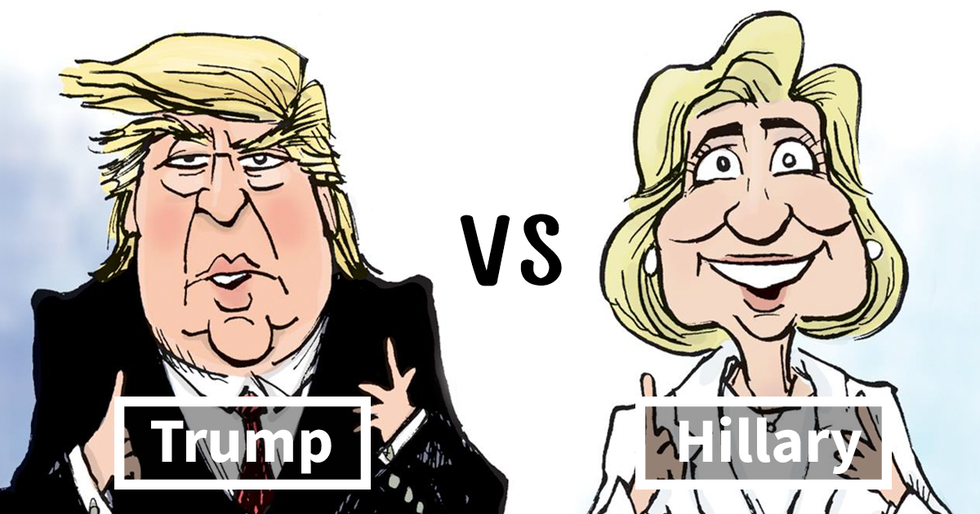If you asked someone on the street who they're voting for, you'll receive a few very heated answers.The presidential election this year may very well be one of the most polarizing issues since the SCOTUS marriage equality decision, which could be expected from the decision of who will take over the nation for the next four years. Conceptually, voting is our democratic right to representation in the government. The system in itself is heavily flawed, peppered with fraud and falsehood; however, participating in the process is one of the only ways to influence your country's political sphere.
Do you resent the status quo of the corruption inherent in the two-party system? There are other options available for you. It's important to dismantle the notion that voting for a third party candidate is a "waste of a vote" whenever sacrificing your political, moral, and ethical beliefs to vote for whichever candidate you consider to be the lesser of two evils is fueling the very institution that brought you the larger evil to begin with. I will not go into my personal political beliefs here, but regardless of whether you lean to the left or right this applies to you. If you truly can look into yourself and support your Republican or Democrat candidate of choice wholeheartedly then you are the minority in this race. A new Associated Press-GfK poll stated that three-quarters of voters chose their candidate based on opposition to the other, instead of their positions on issues or experience. The poll goes on to describe how 14 percent of both Trump and Hillary supporters are backing candidates they do not actually like.
The intense polarization mirrors general unrest and fear
within the American populace in the face of economic troubles, an international
refugee crisis, and the upheaval of sociopolitical norms abroad- the United
Kingdom's vote to leave the European Union, also known as #Brexit, has left
many Americans wondering what the world will turn into in the next ten years. Many of us are looking to our future president to navigate the country through these difficult times without subjecting the economy to anymore unnecessary stress or starting another war. The fact of the matter is that in an election where so many people are voting against rather than for someone, it is promising to look to third parties as a viable alternative.
The first results that pop up when googling information about the third parties are always questioning whether or not a third party candidate can actually affect the election. The answer is a bit more complicated than yes or no. With 10 percent of voters openly voting third party in November, the impact Gary Johnson and Jill Stein are having on the American people cannot be ignored. The Libertarian party in particular is receiving a lot more attention than it did in previous elections with Johnson attracting jaded voters away from both the Trump and Hillary camps. The long term effects of this could be anywhere from increased zeal in upcoming elections for third party candidates that offer a different blend of stances with a cleaner record to the eventual restructuring of our two party system. Democracy has the uncanny ability to eventually work itself out. Hence, the prevalent attitude that voting for neither Hillary nor Trump is secretly voting for whichever one you dislike the most is just peer pressure at its finest.
If you vote for your candidate and they don't win, is it a wasted vote?
Absolutely not. One vote isn't going to swing an election and voting for the lesser of two evils against your conscience isn't going to keep a crook or a fascist out of the white house.
If you vote for a candidate you don't truly support and they win, but act against your political views in the future, is it a wasted vote?
I think so. The most important thing in this election is to be as educated about the issues at hand as possible, not that you support one candidate or the other. Damage can be prevented by a well-read constituency to a certain degree so that's all we can really do at that point. Think about what you're supporting instead of who.





















